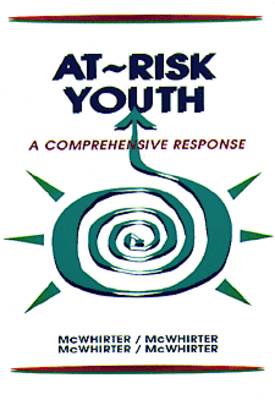Counseling S.
2 total works
At-risk behaviors are the biggest single problem with youth today, a topic of growing importance in the fields of both counseling and education. Whether the term "at-risk" connotates a local school districts problems with youth suicide and school dropout, the correction systems concerns about juvenile delinquency, or the health systems concerns with teen pregnancy, child abuse, and AIDS, the individuals labeled as such need the on-going help of professionals to help them overcome their problems. ..In the McWhirters intriguing new book, the authors show how at-risk individuals can become responsible and productive adults. The book provides up-to-date information and research on the different at-risk categories and puts the categories in a unified and consistent conceptual framework. As the authors focus on the various aspects of at-risk behaviors for the different helping professionals -- especially counselors and teachers -- they present educational, psychological, and counseling interventions for prevention and treatment for each problem area..The book is organized for teaching flexibility: the chapters may be used in sequence, or several different teaching modules can be created using the text. By combining various chapters, instructors may create an overview module, a family module, a school issues and dropout module, a prevention module, four modules based on the at-risk categories: substance use, teen pregnancy, juvenile delinquency, and youth suicide, and four modules based on treatment interventions: refusal and resistance training; an Adlerian/Driekurs model; Glassers Reality Therapy; and crisis intervention.
Essential Interviewing
by David R. Evans, etc., Margaret Hearn, and Max Uhlemann
Published 1 January 1989
From building rapport to facilitating change in both co-operative and resistant clients, this book guides readers step by step to mastery of each component of the complex process of effective professional/client communication. With an underlying foundation based on drawing out the stories that people have and listening to them, the book provides skills for physicians, nurses, ministers, teachers, psychologists, counsellors, and other professionals who are consistently involved with other individuals.

